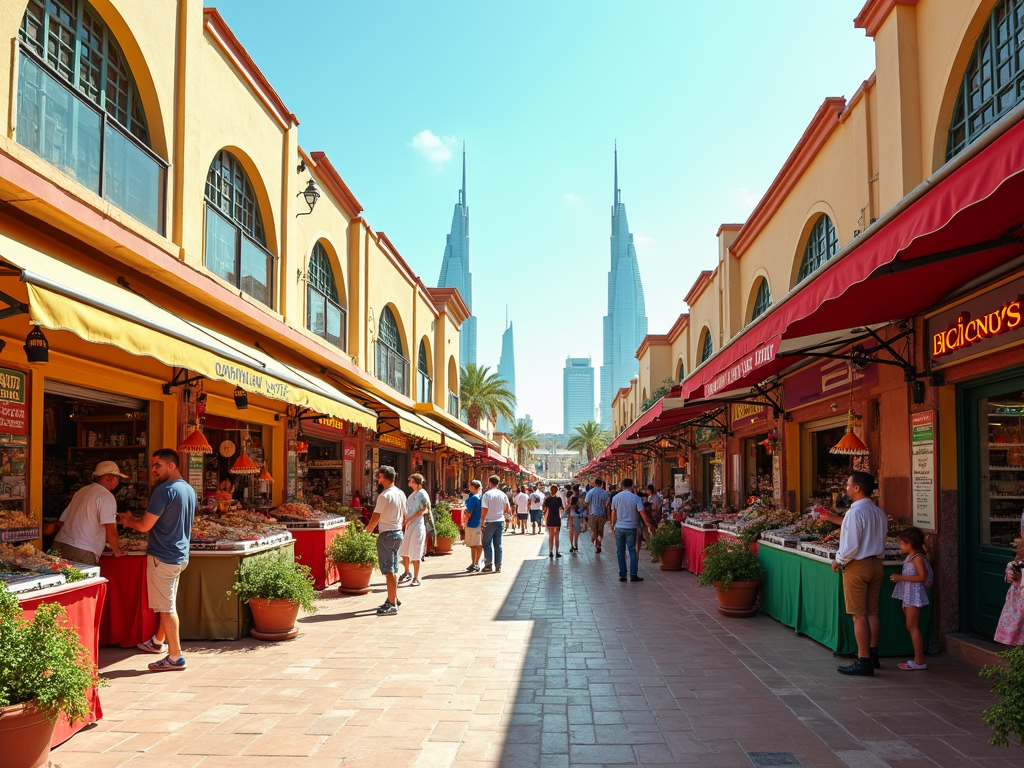Dubai’s commercial leasing market is a vibrant and ever-evolving landscape, catering to a diverse range of businesses from startups to multinational corporations. The city’s strategic location, economic stability, and tax-free environment make it an attractive hub for entrepreneurs and investors alike. Understanding the nuances of this market is essential for anyone looking to lease commercial property in Dubai, as it involves various regulations, costs, and trends that can significantly impact business operations. This article delves into the key aspects of Dubai’s commercial leasing market, including market trends, common types of leases, regulatory frameworks, and tips for securing the best deal.
Current Market Trends

The commercial leasing market in Dubai is characterized by fluctuating demand and a dynamic economic environment. Here are some notable trends influencing the market:
- Shift Towards Flexible Spaces: With remote working becoming more common, businesses are increasingly considering flexible office spaces and co-working facilities.
- Technology Integration: Companies that offer technological amenities, such as high-speed internet and smart office solutions, are in high demand.
- Sustainability Initiatives: Businesses are looking for environmentally friendly options, pushing landlords to incorporate green technologies and practices.
- Growth of E-commerce: The rise of online retail has led to an increased need for warehousing and distribution space.
- Competitive Rental Rates: Amidst economic fluctuations, landlords are adjusting rates to attract tenants, often leading to favorable negotiations for lessees.
Types of Commercial Leases

In Dubai, commercial leasing agreements can vary significantly based on the nature of the business and property type. Understanding the types of leases available can help businesses make informed decisions:
- Full-Service Lease: This type includes all property expenses—maintenance, property taxes, insurance—within the rental fee, making budgeting more straightforward for tenants.
- Gross Lease: Similar to a full-service lease, tenants pay a fixed amount that encompasses all costs, although specific terms may vary by agreement.
- Net Lease: Here, tenants are responsible for additional expenses like taxes and maintenance, typically resulting in a lower base rent.
- Percentage Lease: Common in retail, tenants pay a base rent plus a percentage of their sales, incentivizing landlords to ensure the property attracts customers.
- Flexible Lease: Especially appealing to startups, these leases offer adaptable terms and shorter commitments, catering to changing business needs.
Regulatory Framework and Requirements
Understanding the legal landscape is crucial when entering Dubai’s commercial leasing market. The regulatory framework is governed by various laws and regulations, such as:
- The Dubai Land Department (DLD): This body oversees property registrations, ensuring transparency in leases.
- Real Estate Regulatory Agency (RERA): RERA manages regulations relating to real estate transactions and provides dispute resolution mechanisms.
- Tenancy Contracts: All leases should be documented formally to be enforceable, with RERA providing standardized contracts to mitigate disputes.
- Commercial Property Classification: Businesses must be aware of zoning laws that determine what types of activities can occur in different areas.
- Security Deposits: Typically, landlords require a security deposit of 5-10% of the annual rent, which is refundable at the end of the lease term, subject to conditions.
Securing the Best Lease Deal
To navigate Dubai’s commercial leasing market effectively and secure favorable terms, tenants should consider the following tips:
- Research the Area: Evaluate the location concerning your target market, accessibility, and neighboring businesses.
- Engage a Professional: Collaborate with a real estate agent familiar with local market trends and legalities to guide you through the process.
- Negotiate Terms: Be prepared to enter negotiations on rent, maintenance fees, and lease duration to optimize your leasing conditions.
- Inspect the Property: Always conduct a thorough inspection and consider factors like infrastructure, amenities, and potential for expansion.
- Understand the Costs: Familiarize yourself with all applicable costs beyond rent, such as utility bills, service charges, and maintenance fees.
Conclusion
Dubai’s commercial leasing market presents unique opportunities and challenges for businesses. By understanding market trends, types of leases, and regulatory requirements, companies can better position themselves for success. With the right knowledge and resources, businesses can navigate this competitive landscape and secure a lease that aligns with their operational needs and growth strategies. Staying informed and prepared can greatly enhance leasing negotiations and overall business outcomes in this dynamic market.
Frequently Asked Questions
1. What is the typical lease duration for commercial properties in Dubai?
The standard lease duration for commercial properties in Dubai is typically one to three years, with many landlords being open to negotiating longer terms depending on the tenant’s needs.
2. Are there additional fees associated with commercial leasing in Dubai?
Yes, tenants may be responsible for maintenance fees, utility costs, and property tax, depending on the lease structure. It’s essential to clarify these costs before signing a lease.
3. Can foreign companies lease commercial property in Dubai?
Yes, foreign companies can lease commercial property in Dubai, but certain regulations and requirements apply, especially for businesses operating in specific sectors.
4. How can tenants resolve disputes with landlords in Dubai?
Tenants can seek resolution through RERA, which provides mediation and arbitration services to address disputes arising from commercial leasing agreements.
5. What are the tax implications of leasing commercial property in Dubai?
Dubai has no income tax on rental income, which makes leasing commercial property particularly attractive, though other regulatory fees and charges may apply.
